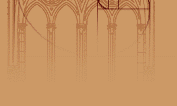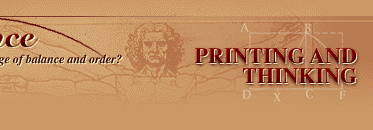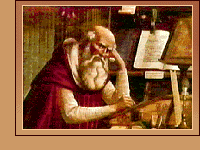 
Humanism The Infancy of Printing Printing: Renaissance |
 The Humanist Philosophy The new interest in secular life led to beliefs about education and society that came from Greece and Rome. The secular, humanist idea held that the church should not rule civic matters, but should guide only spiritual matters. The church disdained the accumulation of wealth and worldly goods, supported a strong but limited education, and believed that moral and ethical behavior was dictated by scripture. Humanists, however, believed that wealth enabled them to do fine, noble deeds, that good citizens needed a good, well-rounded education (such as that advocated by the Greeks and Romans), and that moral and ethical issues were related more to secular society than to spiritual concerns.
Rebirth of Classical Studies The rebirth of classical studies contributed to the development of all forms of art during the Renaissance. Literature was probably the first to show signs of classical influence. The Italian poet Petrarch (1304-1374) delighted in studying the works of Cicero and Virgil, two great writers of the Roman age, and he modeled some of his own writings on their works. Although he often wrote in Latin, attempting to imitate Cicero's style, Petrarch is most renowned for his poetry in Italian. As one of the first humanists, and as a writer held in high esteem in his own time, he influenced the spread of humanism--first among his admirers, and later throughout the European world. Spiritual Matters During the Renaissance, a churchman named Martin Luther changed Christianity. On October 31, 1517, he went to his church in the town of Wittenburg, Germany, and posted a list of things that worried him about the church. His list included the church's practice of selling indulgences, a means by which people could pay the church to reduce the amount of time their souls must spend in purgatory instead of atoning for their sins via contrition. Luther also requested that, when appropriate, Mass be said in the native language instead of in Latin so that the church's teachings would be more accessible to the people. This request for reform ignited the beginnings of the Protestant Reformation. Many other Christians agreed that the church needed to change, and several new Christian religions were established during this time. The old church became known as Roman Catholic, and new Christian sects were known by their leaders--among them Lutherans (Luther) and Calvinists (John Calvin).
| |||||
